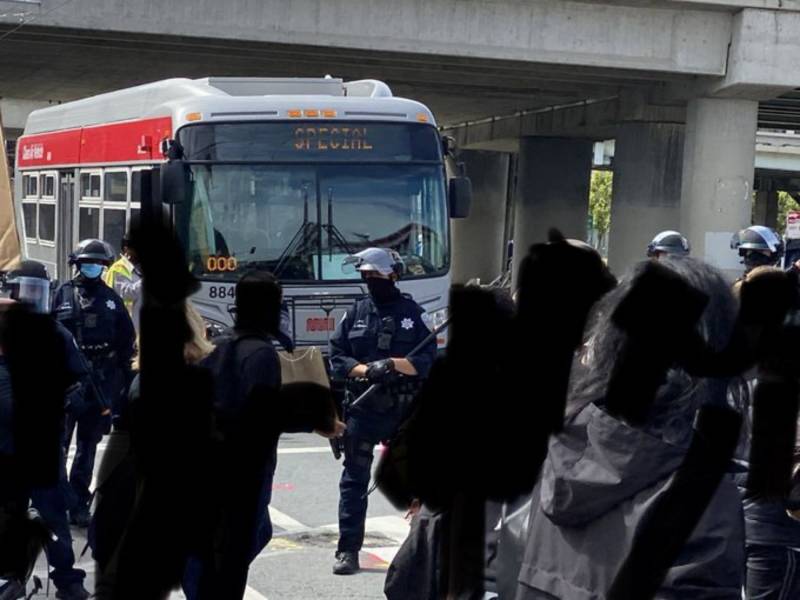Two Saturdays ago, demonstrators marching in San Francisco viewed a peculiar sight.
Some police, clad in full riot gear, did not arrive at Union Square in police cars, sirens blazing. Nor did they ride in on motorcycles, bicycles or even those armored vehicles — the Lenco BearCat — that have been ubiquitous in demonstrations across the United States. Instead, they arrived the way 720,000 people once traveled to work in San Francisco every day (before COVID-19, anyway) — by Muni bus.
After a public outcry and a quieter, internal rebellion by San Francisco’s own transportation agency employees, the years-long practice will end.
Muni buses will no longer transport police to political demonstrations about “police brutality,” the San Francisco Municipal Transportation Agency announced on Twitter Tuesday.
It’s a small rebellion by a transit agency against local police, and particularly poignant after decades of mistrust between black Americans and public transportation agencies.
It was on a bus, after all, that Rosa Parks was met with racist orders to yield a seat to a white passenger in 1955 — and it was on a BART platform where Oscar Grant was shot and killed by a transit police officer as he lay unarmed on the ground in 2009.
The decision by Muni leadership came after turmoil both public and behind closed doors. And there are no rules in Muni’s books to prevent the practice in the future — yet.

